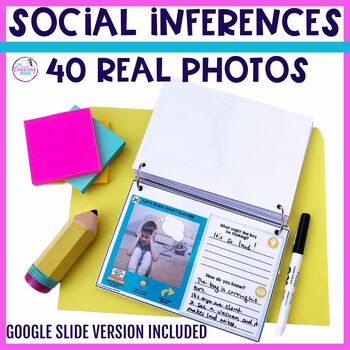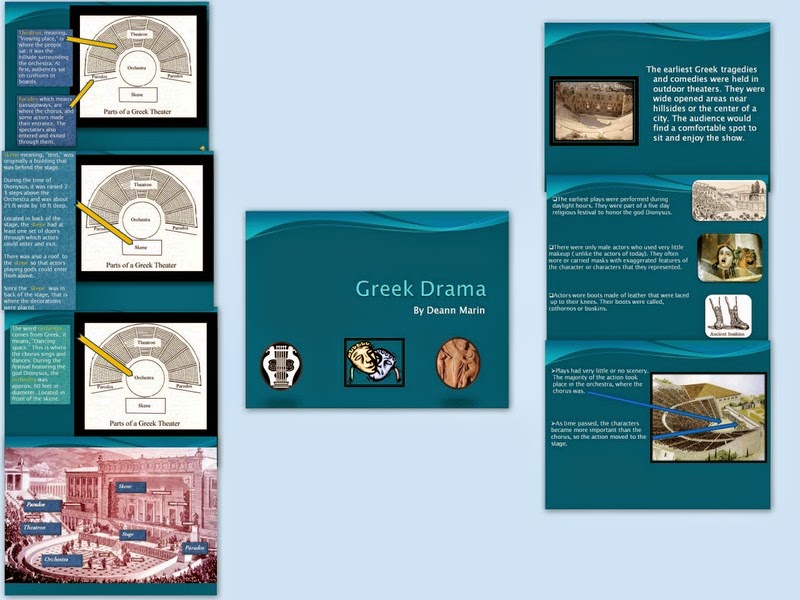"Dr. Frankenstein?"
"Frankensteen."
"You're putting me on!"
"You must be Eegor."
"No, it's Igor."
"But they told me it was Eegor."
"Well they were wrong then, weren't they?"
The words "lab classroom" never fail to conjure up images of crazy-haired Gene Wilder and boggle-eyed Marty Feldman in the opening scenes of "Young Frankenstein." I imagine myself in a white lab coat, wearing glasses that make my eyes appear 10 times larger than they really are...and my students tethered to numerous scientific experiments, calmed only by the strains of "Puff the Magic Dragon" played on my ukulele. In fact, I'm giggling to myself as I sit here typing these words.
Pedagogy Is a Science
All kidding aside, pedagogy is "the art, science or profession of teaching" (Merriam-Webster Dictionary). Sometimes, it does feel like "MAD science," as we race around implementing procedures and techniques that have very little basis in the real science of educational research. Some days, I do look a little like Gene Wilder. Other days, I think I channel Marty Feldman.
My staff has been on a journey over the last two years. We've begun delving into the work of Harvard's Project Zero, and we've chosen to examine Ron Ritchart's Creating Cultures of Thinking: The 8 Forces We Must Master to Truly Transform Our Schools and its implications for us as a community of learners. We began this journey by reading Making Thinking Visible (Church, Morrison & Ritchart). This year, we've waded into the deep end of this inquiry.
One thing that became apparent in our learning is that we are really good at talking about data...REALLY good. We examine it. We know where our students are in their learning. We know who needs to be pushed. We know who needs remediation. However, we seldom talk about the how. How do we push this child? How do we help that child? In our PLTs, we seldom discuss pedagogy.
Dr. Frankenstein Has Entered The Room
We want pedagogical conversations to occur naturally. And on some level, they used to before the content of team meetings became so heavily monitored or dictated. So in order to shift our staff culture, we scheduled two lab classroom days.
What are lab classrooms? In our building, lab classroom days are when staff members, who have agreed to open up their practice to their peers, teach a 45 minute lesson in front of 4-5 colleagues. Within the lesson, the host teacher is using a thinking routine embedded in the lesson. Colleagues are there to observe, not participate or interact with the students. After the lesson, the host teacher leaves the classroom (a substitute or another staff member provides coverage) with the observing colleagues for a 30 minute debriefing session.
The debriefing session is highly structured and requires the host and observing colleagues to reflect on the moves the teacher used to encourage student thinking and the evidence of student thinking during the lesson. Another staff member or in our case, a staff development teacher or coach leads the debriefing session.
During the debrief, participants are not allowed to make judgement statements...this includes PRAISE. Not praising a colleague is perhaps the hardest part of the debrief. The purpose of it is to focus solely on the what was observed and the evidence of thought. The minute we start to praise, objectivity goes out the window. On our lab classroom days, we secure 4 substitute teachers who travel throughout the day to cover staff members who are observing. We have five teachers who volunteer to teach lessons using thinking routines, and then we schedule the rest of our staff in groups of 4 or 5 to observe those teachers.
When You Put The Lab Coat On...
I volunteered for the first day of lab classrooms, since I had facilitated them as a coach in years past, I felt more comfortable in sticking my neck out. I chose to model a thinking routine that was new to my students, because I thought that watching a teacher "unpack" a new routine might be beneficial for my colleagues. I chose Claim-Support-Question.
We had been studying powers of ten in our math workshop, so I came up with the question, "Do other multiplication patterns exist when we use exponents with other numbers?"
I began my lesson by introducing the Claim-Support-Question Routine. Using a slide show that I had created, we discussed the words "claim" and "support." I asked students my math question, and then sent them back to their table groups to discuss it and write a claim statement on their table's chart paper.
After they had written their claims, they returned to the carpet to report out to the whole groups. Then, we talked about how we might support our claims. What procedures might they follow? They returned to their tables to investigate.
This was fun to watch. All groups, except one, claimed that there would be patterns. All groups chose a number and found the exponential products for that number up to an exponent of 10. I allowed them to use calculators for this part, so it was more easily investigated. We stopped briefly to remember that scientists and mathematicians want more than one set of data to prove a claim, and then groups continued to work with other numbers to triangulate their data.
At this point, I had to leave with my observing colleagues and a substitute took over. But before I did, I asked my students to talk to me about their thoughts about the new thinking routine and the type of thinking they believed they engaged in... in other words, I asked my students to engage in some metacognition. They did not disappoint. Using Project Zero's Circle of Understanding, my students engaged in a lively debate about uncovering complexity and reasoning with evidence. Then, my students continued the investigation without me.
Mad Science Without The Crazies
The debrief of my lesson was fun. The lack of praise was weirdly awesome. Here's why: When people praise me, I am uncomfortable. Sometimes, I distrust what they say. Often times, I feel embarrassed. In the debriefing session, I heard specific feedback. I heard my colleagues comment on the amount of scaffolding I used to introduce a new thinking routine. I listened to feedback about differentiation and how I utilize the Circle of Understanding in my classroom. I swelled with pride as they named and noticed evidence of student thinking and depth of student thinking. All of this without, "You did a good job when..." Afterward, I walked out feeling six inches taller, and I had some new pedagogical targets to chew on for upcoming lessons.
Shifting Culture
We have a long way to go in our learning community. Don't we always? That's the nature of being a community learners: CHANGE. That being said, I've noticed three shifts as a result of our lab classrooms.
- More of us are talking about our classroom practices more often.
- These discussions have an inquiry-like tone.
- Our conversations and reflections have deepened, and we are asking more questions about our practices.
Ohhhhhh, Sweet Mystery of Life
"Ohhhh, sweet mystery of life, at last I've found you..." Madeline Kahn rocked that song at the end of "Young Frankenstein," didn't she? Change has begun in our learning community because of lab classroom experiences. It's exciting to see what happens when teachers take control of their own learning and protocols are implemented that promote a safe sharing environment.
When I returned to my classroom, my students showed me their questions. They asked a number of questions, but two particular questions gave me goosebumps:
- If we multiply fractions exponentially, will there be patterns?
- If we multiply decimals exponentially, will there be patterns?
They connected the inquiry to our past units of math study! "Ohhhhh, sweet mystery of life! At last, I found you!"
FREEBIE ALERT
If you'd like a copy of the inquiry math lesson I taught during my lab classroom experience, click the picture below.
You might also be interested in the these visible thinking resources:
Until next time, teach on!
P.S. Come back next week! It's 3 E's Blogging Collaborative Week and there'll be free goodies!







































